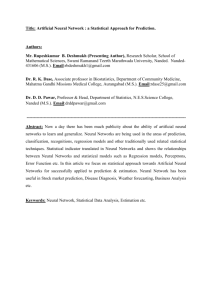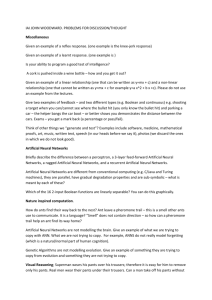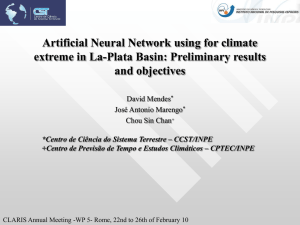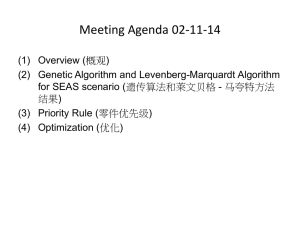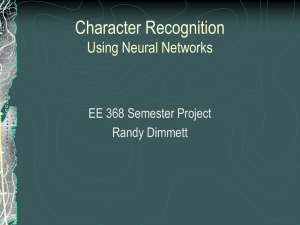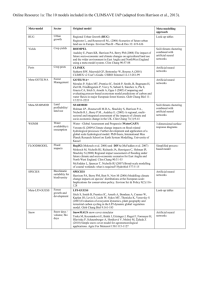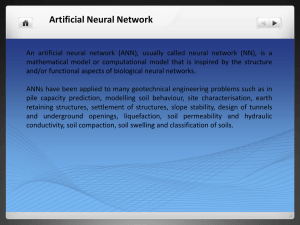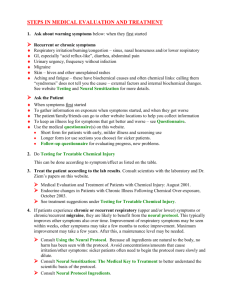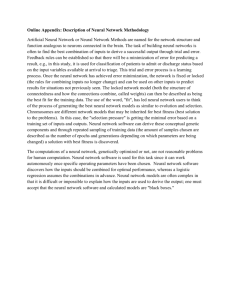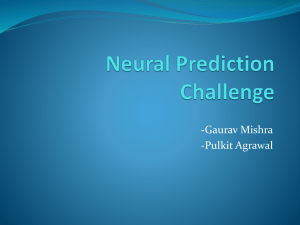2.14. Control questions and self
advertisement
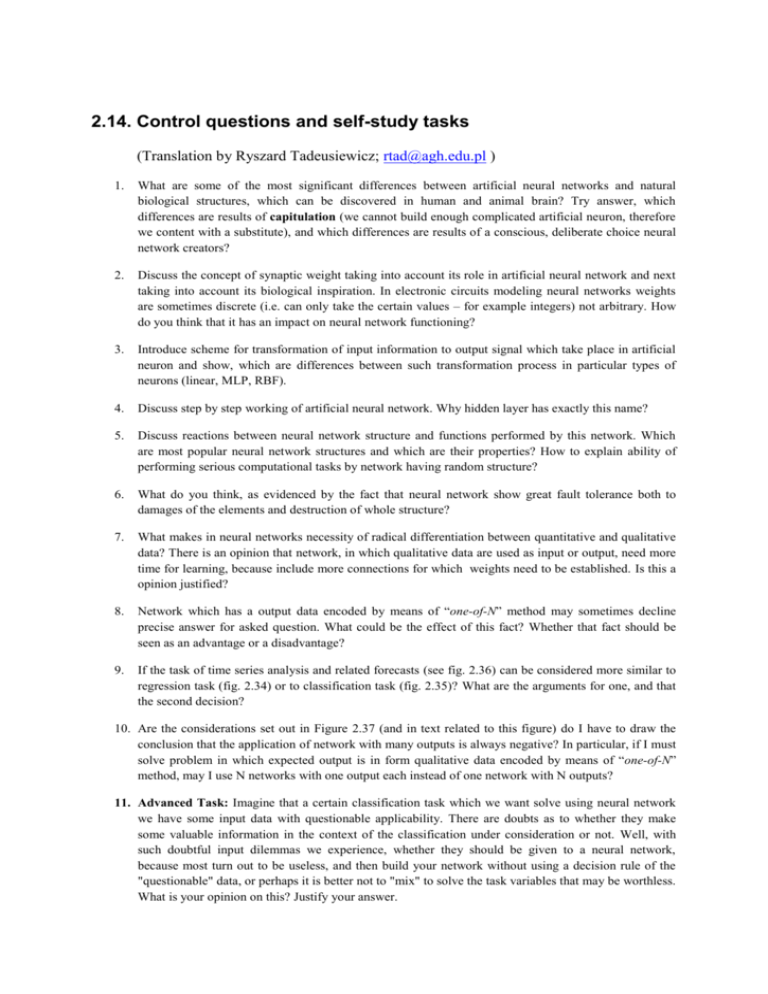
2.14. Control questions and self-study tasks (Translation by Ryszard Tadeusiewicz; rtad@agh.edu.pl ) 1. What are some of the most significant differences between artificial neural networks and natural biological structures, which can be discovered in human and animal brain? Try answer, which differences are results of capitulation (we cannot build enough complicated artificial neuron, therefore we content with a substitute), and which differences are results of a conscious, deliberate choice neural network creators? 2. Discuss the concept of synaptic weight taking into account its role in artificial neural network and next taking into account its biological inspiration. In electronic circuits modeling neural networks weights are sometimes discrete (i.e. can only take the certain values – for example integers) not arbitrary. How do you think that it has an impact on neural network functioning? 3. Introduce scheme for transformation of input information to output signal which take place in artificial neuron and show, which are differences between such transformation process in particular types of neurons (linear, MLP, RBF). 4. Discuss step by step working of artificial neural network. Why hidden layer has exactly this name? 5. Discuss reactions between neural network structure and functions performed by this network. Which are most popular neural network structures and which are their properties? How to explain ability of performing serious computational tasks by network having random structure? 6. What do you think, as evidenced by the fact that neural network show great fault tolerance both to damages of the elements and destruction of whole structure? 7. What makes in neural networks necessity of radical differentiation between quantitative and qualitative data? There is an opinion that network, in which qualitative data are used as input or output, need more time for learning, because include more connections for which weights need to be established. Is this a opinion justified? 8. Network which has a output data encoded by means of “one-of-N” method may sometimes decline precise answer for asked question. What could be the effect of this fact? Whether that fact should be seen as an advantage or a disadvantage? 9. If the task of time series analysis and related forecasts (see fig. 2.36) can be considered more similar to regression task (fig. 2.34) or to classification task (fig. 2.35)? What are the arguments for one, and that the second decision? 10. Are the considerations set out in Figure 2.37 (and in text related to this figure) do I have to draw the conclusion that the application of network with many outputs is always negative? In particular, if I must solve problem in which expected output is in form qualitative data encoded by means of “one-of-N” method, may I use N networks with one output each instead of one network with N outputs? 11. Advanced Task: Imagine that a certain classification task which we want solve using neural network we have some input data with questionable applicability. There are doubts as to whether they make some valuable information in the context of the classification under consideration or not. Well, with such doubtful input dilemmas we experience, whether they should be given to a neural network, because most turn out to be useless, and then build your network without using a decision rule of the "questionable" data, or perhaps it is better not to "mix" to solve the task variables that may be worthless. What is your opinion on this? Justify your answer. 12. Advanced Task: In books and articles describing neural networks sometimes it is proposed to use genetic algorithm. Such algorithm is a kind of simulation of natural biological evolution in computer. In this evolution “the fittest survive” where “fittest” means the network having the best abilities and giving the best solution of considered task. This method can be used for selection the best inputs for the network, estimation optimal number of hidden layers and for evaluation the best number of hidden neurons in each layer. Try study more about this method and elaborate your own opinion if this method is good or not? Present arguments both for one, and the second option.
